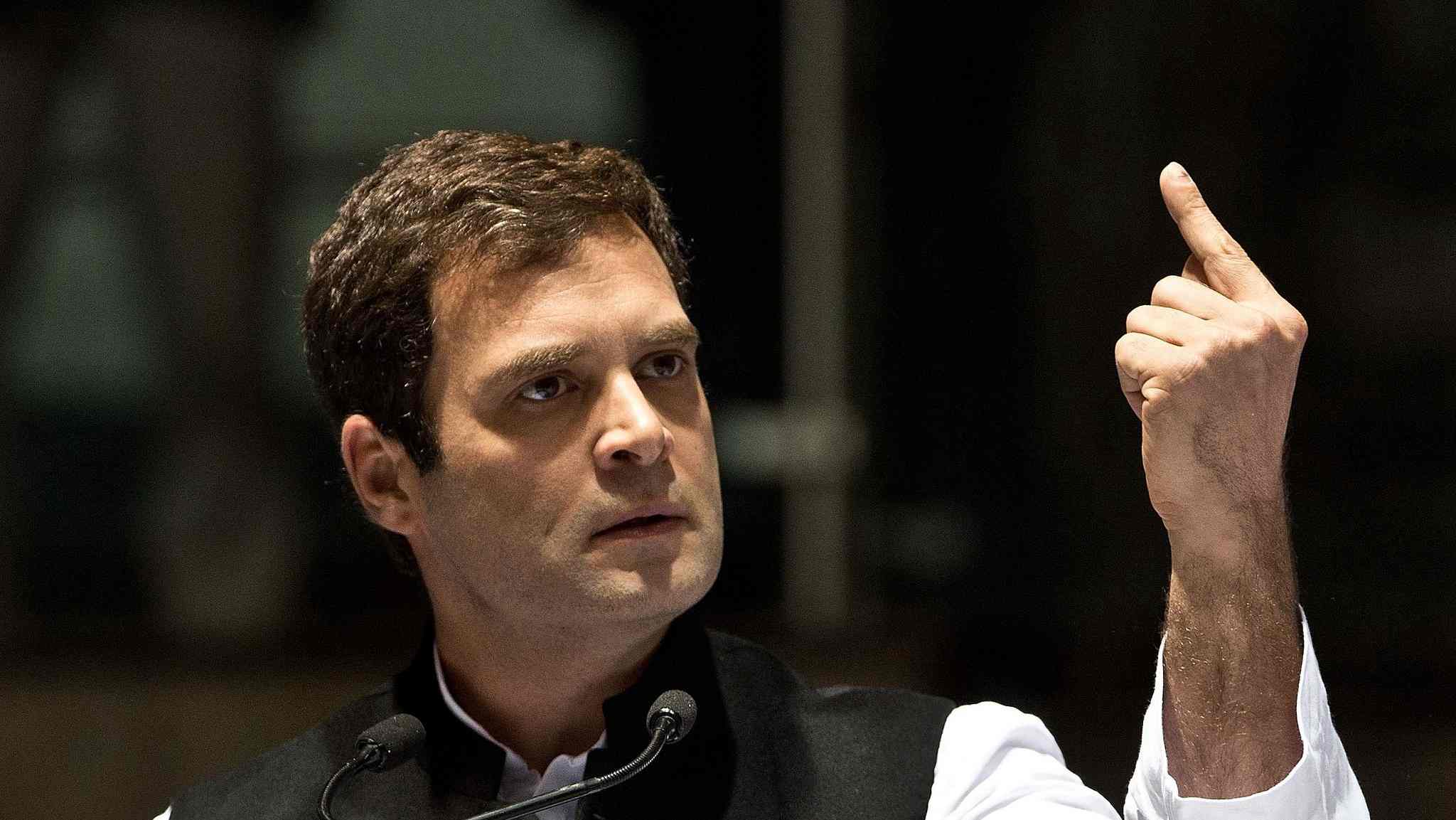Indian Prime Minister Narendra Modi suffered his biggest electoral setback in four years on Tuesday after Modi's Bharatiya Janata Party (BJP) lost its three stronghold states in the country's heartland to main opposition party Indian National Congress.
The man who scripted this surprise win is the heir of the Nehru-Gandhi family and president of the 133-year-old Congress party, Rahul Gandhi.
He is the son, grandson and great-grandson of three former prime ministers: Rajiv Gandhi, Indira Gandhi and Jawaharlal Nehru respectively. But despite his family's rich political legacy, success eluded the Gandhi scion for many years.
For the 48-year-old, who took over as president of the party in December last year, at a time when the Congress party ruled merely five out of the total 29 states, “the victory marks his public 'acceptance' as a politician and his emergence as the biggest challenger to Modi for the top job in 2019,” Neerja Chowdhury, a senior political analyst, told CGTN Digital.
"Frankly, Mr. Narendra Modi taught me the lesson of what not to do." – Rahul Gandhi, after winning three state elections.
-
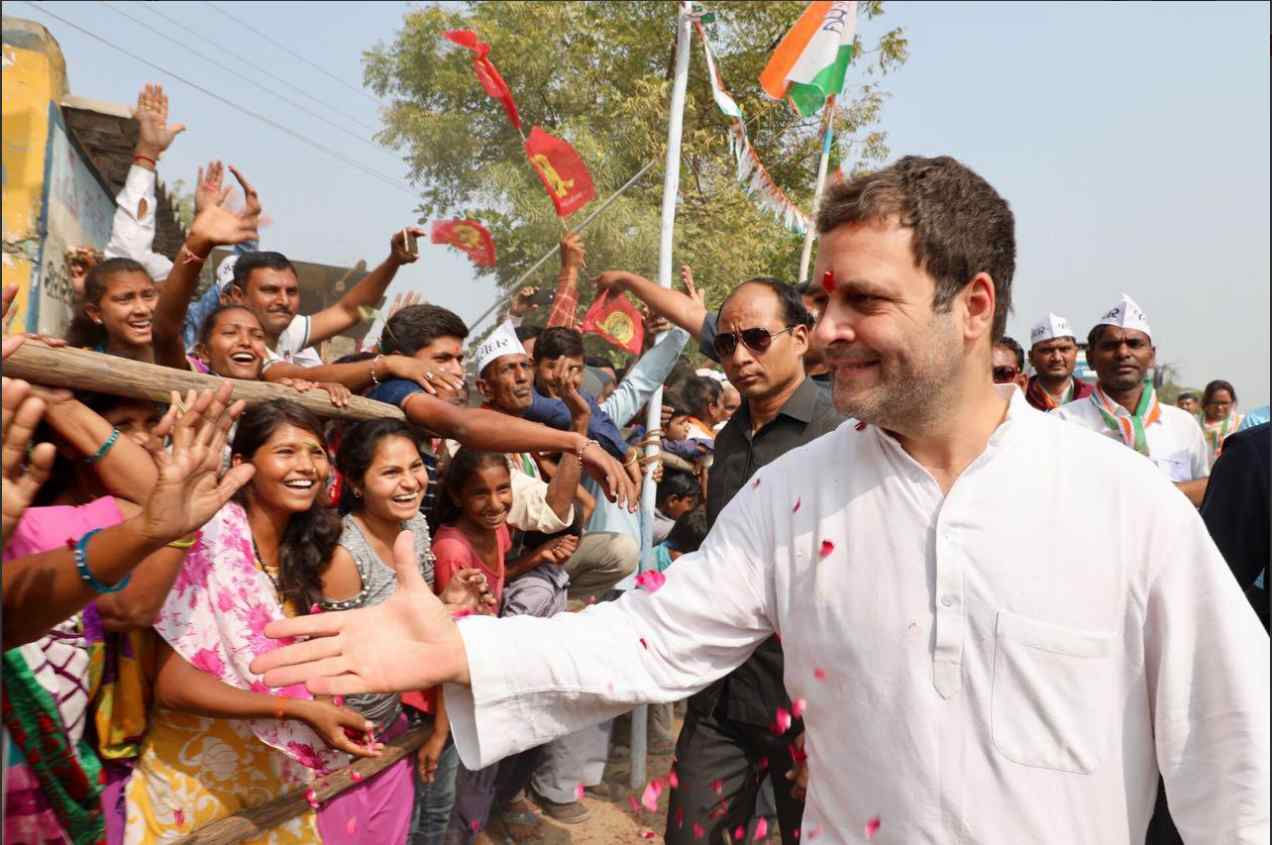
Rahul Gandhi meeting supporters during a public rally in Patan, Gujarat, India, November 13, 2017. /VCG Photo
Rahul Gandhi meeting supporters during a public rally in Patan, Gujarat, India, November 13, 2017. /VCG Photo
However, Gandhi wasn't even considered a serious contender until last year. In 2017, a group of students reportedly proposed Gandhi's name for the Guinness Book of World Records for Congress' 27 consecutive electoral defeats since 2013. In the last four years, the Congress party had failed to win any state election in a direct contest with the ruling BJP. Out of 18 provincial elections, the Congress party managed to win only two.
“This comes as both a personal and political victory for Rahul Gandhi. It would have been the end of his political life if the Congress had lost Madhya Pradesh, Rajasthan and Chhattisgarh,” Shahid Siddiqui, former member of Rajya Sabha (upper house), told CGTN Digital, adding that “facing defeat after defeat Rahul never ran away from taking responsibility for the humiliating losses.”
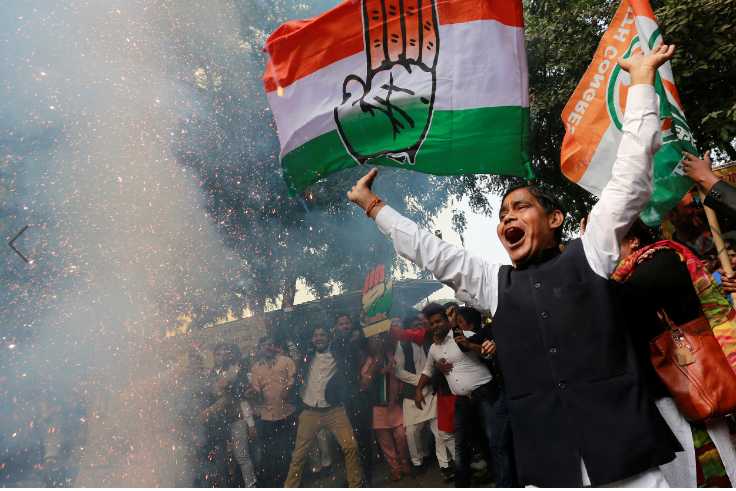
Congress party workers celebrate after initial poll results at the party headquarters in New Delhi, India, December 11, 2018. /VCG Photo
Congress party workers celebrate after initial poll results at the party headquarters in New Delhi, India, December 11, 2018. /VCG Photo
Dubbed as the “reluctant prince” of Indian politics, much has been written about Gandhi's gaffes during public speeches. He is often mocked as “pappu” (foolish) by BJP supporters on social media and taunted as “Shahzada” (prince) by the prime minister himself.
Gandhi began his political journey in 2004, when he was elected to India's parliament from the Amethi constituency in the northern Indian state of Uttar Pradesh, considered a bastion of the Nehru-Gandhi family.
For many years, he chose to operate from behind the scenes. His opponents dismissed him as a novice who lacked political acumen. But 14 years on, analysts believe Gandhi has come of age.
“When I traveled in these states, I realized that people are now looking at him differently. He's more confident, direct and sharp in his public speaking and there's no one else who can take on Modi,” said Chowdhury.
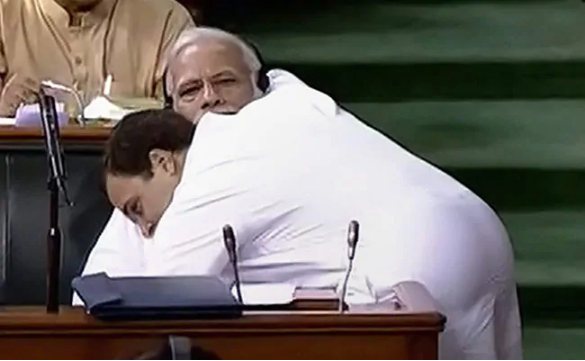
A video grab shows Rahul Gandhi hugging Indian Prime Minister Narendra Modi during parliament proceedings in New Delhi, India, July 20, 2018. / Photo via Twitter
A video grab shows Rahul Gandhi hugging Indian Prime Minister Narendra Modi during parliament proceedings in New Delhi, India, July 20, 2018. / Photo via Twitter
Sushmita Dev, member of parliament and the Congress party, has worked with Gandhi for the last five years and told CGTN Digital “I have never known him to be inarticulate, he's the same person it's just that now he's more vocal. We couldn't have done it without him.”
But the BJP claims that the Congress is celebrating too soon. “BJP has not been wiped out, the victory margin is very low, it has nothing to do with Rahul Gandhi, this victory belongs to regional leaders,” said Seshadri Chari, a senior BJP leader to CGTN Digital.
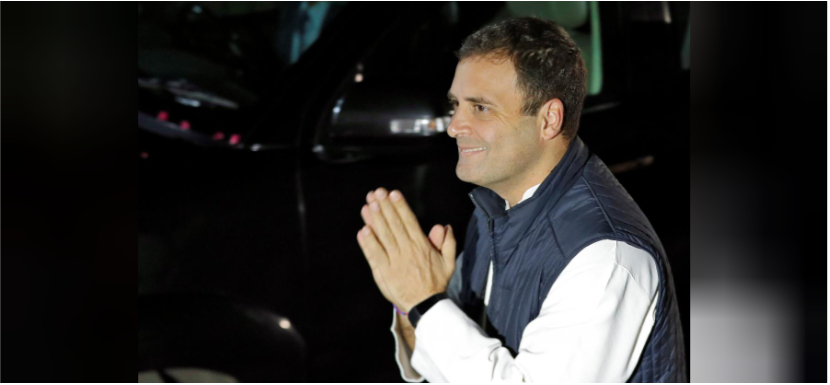
Rahul Gandhi greets his supporters as he arrives for a news conference at Congress headquarters in New Delhi, India, December 11, 2018. /Reuters Photo
Rahul Gandhi greets his supporters as he arrives for a news conference at Congress headquarters in New Delhi, India, December 11, 2018. /Reuters Photo
Why it matters
With just five months to go before general elections, provincial polls in Rajasthan, Madhya Pradesh, Chhattisgarh, Mizoram and Telangana were billed widely as the semi-final, the last popularity test before the 2019 general elections.
The Congress won in Rajasthan and Chhattisgarh and fought a close contest in Madhya Pradesh. It lost Mizoram and performed poorly in Telangana but its wins in India's Hindi-heartland have outweighed the losses.
According to Siddiqui, Narendra Modi is no longer invincible. “It was BJP's overconfidence that led to this defeat. They failed to read the writing on the wall,” he said.
"I accept the people's mandate with humility. I thank the people of Chhattisgarh, Rajasthan and Madhya Pradesh for giving us the opportunity to serve these states."– Narendra Modi, Indian Prime Minister
-
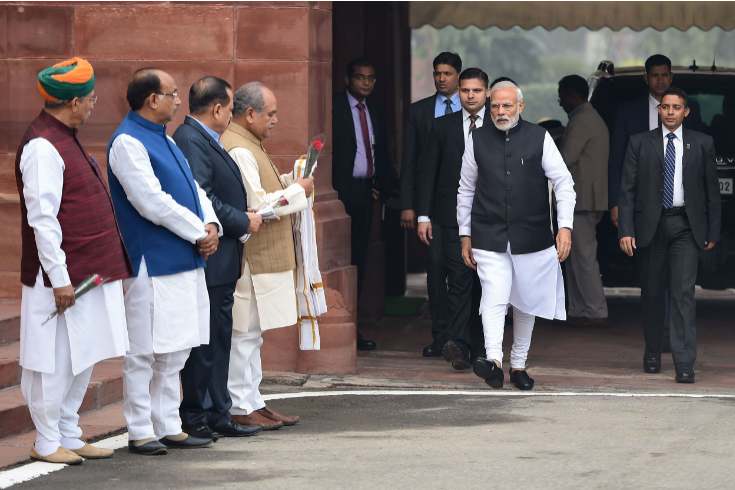
Senior Bharatiya Janata Party (BJP) leaders (L) stand with roses during the arrival of Indian Prime Minister Narendra Modi (2nd R) for the winter session of parliament in New Delhi, India, December 11, 2018. /VCG Photo
Senior Bharatiya Janata Party (BJP) leaders (L) stand with roses during the arrival of Indian Prime Minister Narendra Modi (2nd R) for the winter session of parliament in New Delhi, India, December 11, 2018. /VCG Photo
The states of Rajasthan, Madhya Pradesh and Chhattisgarh together send 65 representatives to India's lower house (Lok Sabha), in 2014 elections Modi's party, BJP, won 62 of these seats.
"One-fourth of BJP seats in Lok Sabha came from these three states. If we go by these results, the party can lose up to 32 seats in this region in 2019 polls,” said Siddiqui while explaining the importance of these three states.
The challenges
While Siddiqui believes that “Rahul has emerged as a national leader after the recent poll results, the biggest challenge for him remains uniting opposing political parties to form a grand alliance.”
“Congress will have to stop acting as a 'big brother,' Indian politics has evolved to an era of alliances,” said Chowdhury adding that “Rahul should be flexible because not all parties accept him as the face of the opposition.”
But the Congress is confident. “Rahul has experience to lead but he's not arrogant to tell others to follow him, hence it's not a big challenge for him to keep everyone together,” said Dev.
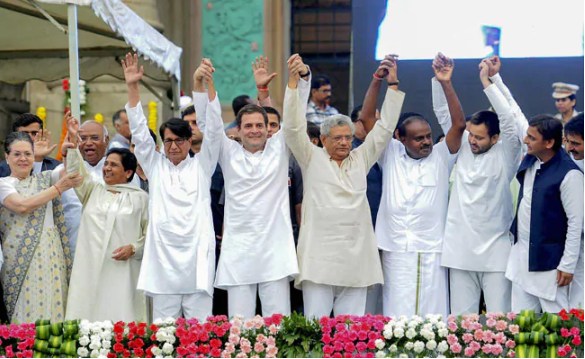
Rahul Gandhi (4th L) and his mother Sonia Gandhi (1st L) with leaders of various regional political parties at the swearing-in ceremony of JD(S) leader H D Kumaraswamy (3rd R) as chief minister of southern Indian state Karnataka in Bengaluru, Karnataka, India, May 23, 2018. /VCG Photo
Rahul Gandhi (4th L) and his mother Sonia Gandhi (1st L) with leaders of various regional political parties at the swearing-in ceremony of JD(S) leader H D Kumaraswamy (3rd R) as chief minister of southern Indian state Karnataka in Bengaluru, Karnataka, India, May 23, 2018. /VCG Photo
The biggest criticism Gandhi has faced over the years is that he's not a full-time politician. The BJP cites his long holidays as a prime example of his casual attitude.
As the old adage goes, a week is a long time in politics and the Indian general elections are more than five months away. So the big question is: Can Gandhi sustain the momentum?

